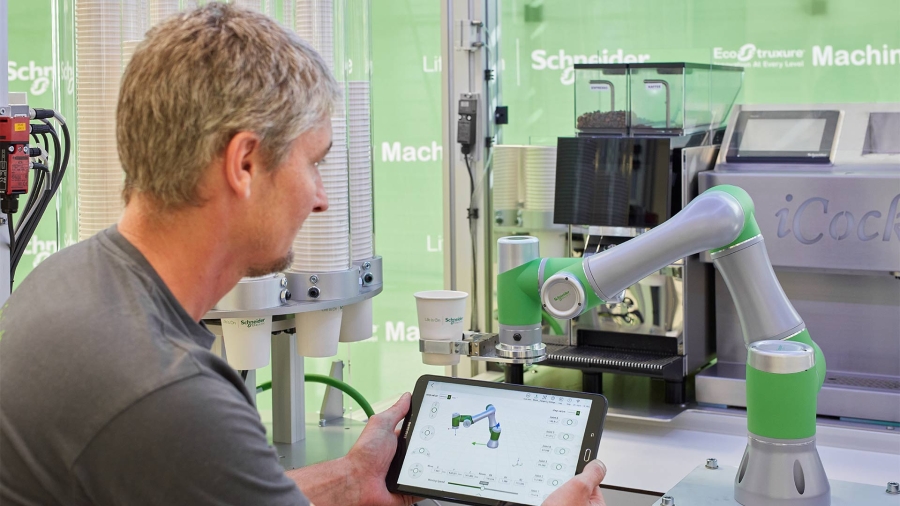There is a heightened need for manufacturers to achieve what the MLC now calls ‘digital acumen’ in their leadership ranks and digital literacy in their workforces; mastery over the collection, organization, and analysis of data; and the need to understand the potential of advanced technologies to create new business models.” Manufacturing Leadership Council
Our world is undergoing a digital metamorphosis. The way we obtain, produce, and deliver goods and services is increasingly driven by information technology. More people are working remotely. More interactions are digital. And more routine, repetitive, and high-risk operations are automated.
Industrial enterprises are under pressure to adopt a digital-driven approach for their operations and for interacting with markets, customers, and the world around us.
At the same time, manufacturing and process industries face accelerating challenges, including supply chain interruptions, the energy crisis, major business disruptions due to the pandemic, intensified sustainability concerns, and a rapidly changing workforce.
As modern industrialists, it’s time to make bold moves. Why? Because we will not succeed simply by making existing processes and equipment more efficient and holding on to outdated business practices.
“Industrial giants rose to dominance by making high-quality physical objects. Lower-cost competition and increasingly complex multistakeholder ecosystems mean this old route to success is no longer sufficient. To survive, industrial firms must move faster, deliver new value to new stakeholders, and respond to the shifting expectations of both their customers and their customers’ customers.” Forrester
Digital transformation is not only about using digital tools to improve the way we currently work. Digital transformation is about fundamentally changing the way we do business. It impacts everything across an organization—from its people and culture to its processes and business model. Companies that undergo holistic digital transformations will be well positioned to prosper among the industries of the future.
According to LNS Research, one-half of industrial enterprises report they have embarked on a digital transformation journey, and these programs are yielding real benefits. LNS found that leaders in digital transformation are 72% more likely to have grown revenues by more than 10%, and 57% more likely to have reduced Cost of Goods Sold (COGS) by more than 10% because of these initiatives.
Our world is undergoing a digital metamorphosis. The way we obtain, produce, and deliver goods and services is increasingly driven by information technology. More people are working remotely. More interactions are digital. And more routine, repetitive, and high-risk operations are automated.
Industrial enterprises are under pressure to adopt a digital-driven approach for their operations and for interacting with markets, customers, and the world around us.
At the same time, manufacturing and process industries face accelerating challenges, including supply chain interruptions, the energy crisis, major business disruptions due to the pandemic, intensified sustainability concerns, and a rapidly changing workforce.
As modern industrialists, it’s time to make bold moves. Why? Because we will not succeed simply by making existing processes and equipment more efficient and holding on to outdated business practices.
“Industrial giants rose to dominance by making high-quality physical objects. Lower-cost competition and increasingly complex multistakeholder ecosystems mean this old route to success is no longer sufficient. To survive, industrial firms must move faster, deliver new value to new stakeholders, and respond to the shifting expectations of both their customers and their customers’ customers.” Forrester
Digital transformation is not only about using digital tools to improve the way we currently work. Digital transformation is about fundamentally changing the way we do business. It impacts everything across an organization—from its people and culture to its processes and business model. Companies that undergo holistic digital transformations will be well positioned to prosper among the industries of the future.
According to LNS Research, one-half of industrial enterprises report they have embarked on a digital transformation journey, and these programs are yielding real benefits. LNS found that leaders in digital transformation are 72% more likely to have grown revenues by more than 10%, and 57% more likely to have reduced Cost of Goods Sold (COGS) by more than 10% because of these initiatives.














